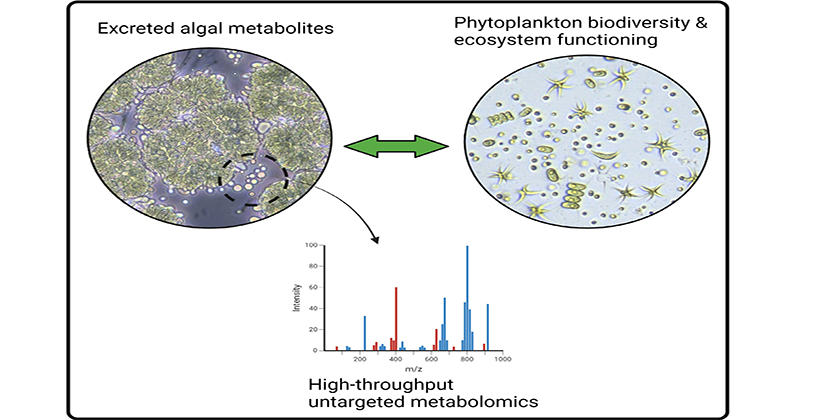Department Aquatic Ecology
The importance of extracellular metabolites for phytoplankton diversity and productivity

Phytoplankton play a vital role in aquatic ecosystem functioning, and their physiological traits allow them to rapidly sequester atmospheric carbon, providing a potentially sustainable source of food, fuel, and bioproducts. Despite the importance of phytoplankton, we still struggle to understand the interacting mechanisms influencing the biodiversity and productivity of phytoplankton communities. One promising, yet understudied, mechanism of species interactions among phytoplankton is the influence of bioactive compounds that they release into the water. These secreted metabolites may have inhibitory effects – leading to competitive, interference interactions and reducing coexistence and productivity – or they may have facilitative effects – leading to increased coexistence and productivity.
The overarching goals of this research project are to 1) characterize the chemical fingerprint that diverse phytoplankton species excrete into the water (i.e., the exometabolome); 2) link these chemical fingerprints to interactions among species; and 3) determine factors that cause changes in phytoplankton exometabolomes. This project employs diverse tools, including high-throughput lab experiments, metabolomics, and experimental evolution.
The interdisciplinary nature of this work calls for new collaborations; this project therefore leverages the complementary expertise of several working groups at Eawag and ETH. We hope the results of this work will benefit both fundamental ecology, as well as industrial applications utilizing intra- and extra-cellular algal metabolites.

